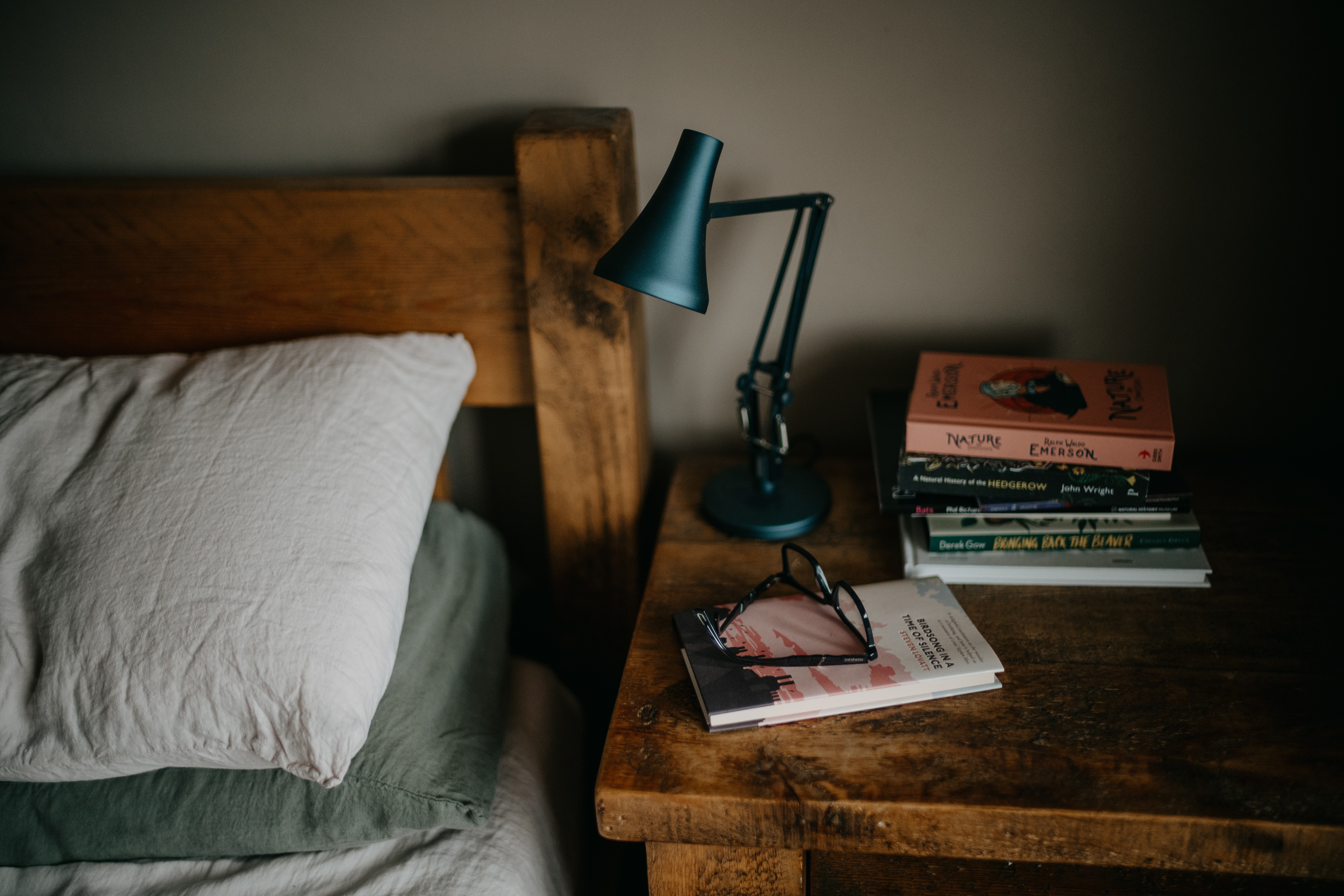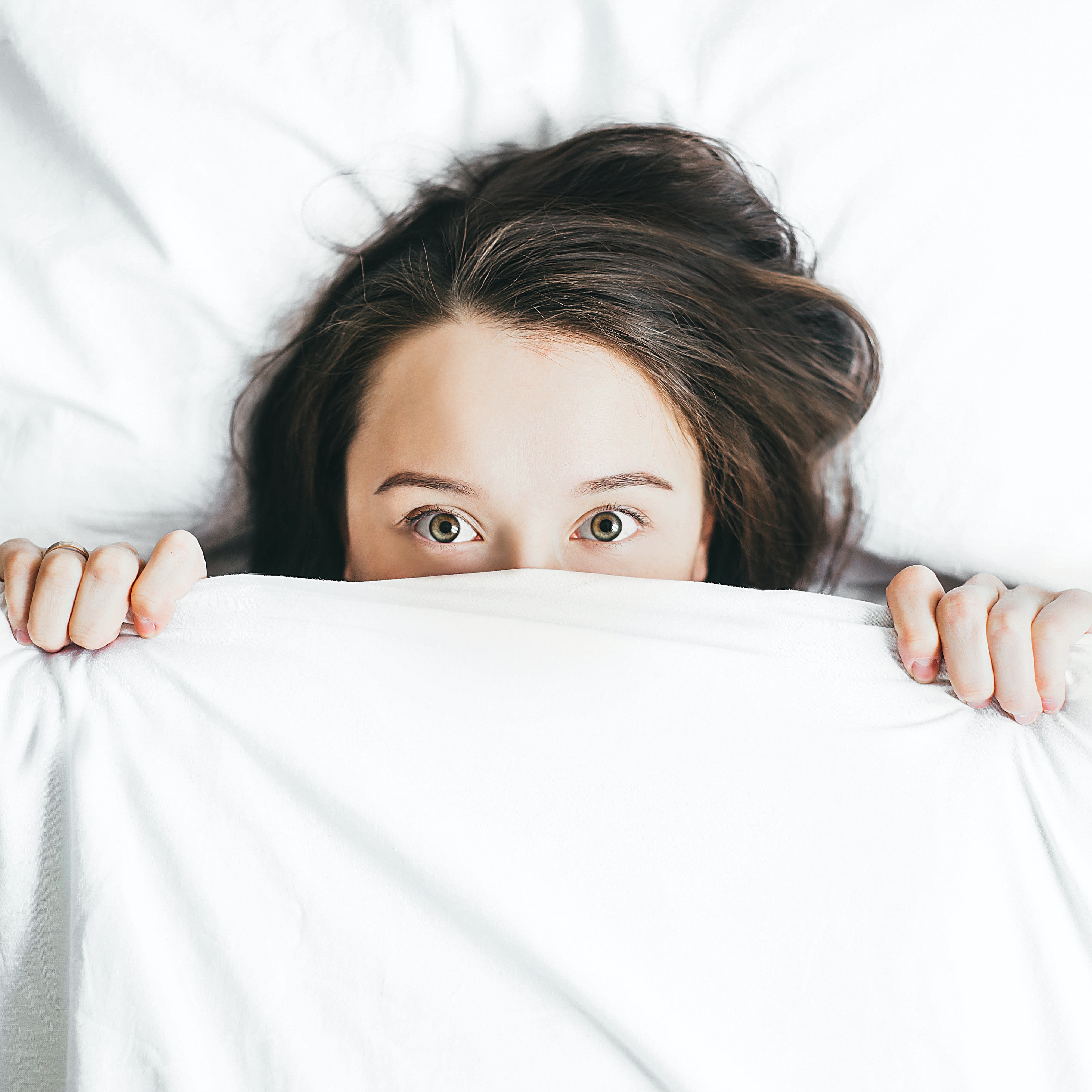As every parent of young children knows, sleep is the most precious of commodities. Were it to be floated on the exchange, its price would exceed all others. The subject is at the forefront of my mind at the moment. Skyping my brother-in-law and daughter-in-law this weekend (both of whom have tiny tots) highlighted the toll that sleepless nights bring. Indeed, considering the levels of sleep deprivation they go through, I am impressed that they are functioning at all, let alone successful professionals.
Sleep has so many necessary functions: from giving your body the opportunity to rest and repair to ensuring good mental health. Yet, too many of us suffer from poor sleep – as many as two-thirds of the population in the UK.
Sleep is crucial to our wellbeing, so if you don’t sleep properly, here are some ideas to improve your nights.

Early to bed, early to rise
Actually, it is not essential to go to bed early to get a good night’s rest. If you are a night owl, who will simply fidget till midnight, going to bed when you are tired is more sensible. That said, almost all experts agree that earlier is better. Though what is really crucial is establishing a regular routine. Why? Because, ‘keeping a regular sleep schedule—even on weekends—maintains the timing of the body’s internal clock and can help you fall asleep and wake up more easily.’ (Harvard Medical School)
The hardest part of this for me is disciplining myself to get up on the weekend when a lie-in seems so appealing. In another article I read, it suggested adding no more than one hour to your normal wake-up time on days off. Our bodies, sadly, do not know the days of the week and if we extend our sleeping one day and not the next, we are simply deregulating the very clock we depend on for contented slumbers.
Making the bedroom a sanctuary
Perhaps the hardest thing for people during lock-down has been the invasion of work into the home and even the bedroom. If there is no other option than to work from there, where possible keep all your work and equipment in a contained space and ideally out of sight at night. This way you can avoid the siren call of answering just one more email.
Bedrooms are where we go to escape the cares of the day. If we fill them with distractions, they are unlikely to prove restful. Ideally, a bedroom should be clutter free and certainly free from electronic devices such as televisions and laptops. And phones. Definitely phones.

There are a number of reasons why looking at your phone at night is problematic: the blue light inhibits melatonin production and damages the eyes; stimulates you just at the time you need to wind down; causes non-restorative sleep that means you wake feeling tired and can have serious implications for your physical and mental health. For a complete discussion of this topic, please read: https://www.nestandglow.com/life/phone-bedroom
Experts recommend looking at your phone no earlier than 30-60 minutes before bed and keeping it in another room from the one where you sleep. I confess that I do take my phone to bed as an alarm and though I seldom consult it for more than a few minutes, having considered the above, I’ve just ordered an alarm clock!
Keeping your bedroom tidy; making your bed in the morning with lovely linens; decorating in calming colours and adding the odd plant to improve air quality should make your room the sanctuary that it is meant to be.
Book at bedtime
There are few things more delightful than dozing off after reading a book. Better still, have someone to read aloud to you. A story at night (though perhaps not a good thriller) is a great way to bridge the world of reality and the world of dreams.

All books are not equal, however. E-books in general carry the same problems as phones and televisions. A study published in the journal Proceedings of the National Academy of Sciences showed that subjects reading from e-readers suffered from a reduction of melatonin and poor quality of sleep. Though it is convenient to use one of these devices when your sleeping partner is dozing off, it may be better to invest in a paperback and a book light.
Interrupted sleep
Far too many people suffer from interrupted sleep or insomnia and few of us will be spared from the odd bout of either. Life is full of stresses and disagreeable surprises, which almost always impact our sleep. Unpleasant though it is at the time, most of us will recover. Others, however, end up on a spiral of inadequate sleep that becomes part of their everyday lives. Knowing how damaging this is, we would be wise to find ways to avoid it happening to us.

Some of the ways to improve sleep are fairly straight-forward, though not necessarily easy to implement if they are part of your habits.
- Avoid stimulants – anything containing caffeine, alcohol and even exercise work as stimulants. Where possible, keep them for earlier in the day.
- Keep your cool – most of us sleep better in a room that is a little cooler. Turn the heating down or off before you go to bed.
- Reduce the amount you drink, or stop drinking altogether in the hours before bedtime. No-one like to get up in the night to go to the toilet! Contrariwise, if you have a cast-iron bladder and want to get up early, drink a glass or two of water before bedtime. Your bladder will serve as an excellent alarm!
- Keep active – the more tired you are, the better you are likely to sleep. If you wish to exercise before bed, stick to something calm like stretching and yoga.
- Get outside – Increasing your exposure to natural light will help you sleep better at night.
- Stress and anxiety are probably the greatest enemies of a good night’s rest. Strategies such as meditation, yoga, talking therapies and cold immersion can all help here.
Non-restorative sleep
Unfortunately, despite trying all of the above, the blissful benefits of restorative sleep may not be available to you. Those with neurological conditions often suffer from poor sleep as a result of pain and symptoms that occur at night. My new magic medicine has helped with these, but still I wake feeling that I have barely gone to bed. It is possible, even likely, that neurological damage is causing this. As a result, scheduling activities with gaps between and regular rest periods are still required.
And if your sleep is interrupted for another reason, be gentle on yourself. Sometimes life hands us more than we are able to cope with.
As always, I’m optimistic and before I go to bed each night, I recite my little mantra: I will rest well. I will sleep deeply. I will awaken refreshed. Haven’t quite managed it yet, but I’ll keep trying.
